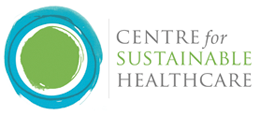- Group home
- You must register/login in order to post into this group.
Optional Module in Sustainable Healthcare
By: UNESP (Universidade Estadual Paulista) Botucatu Medical School
Summary
This fourty-five hour optional module for professionals from a variety of health and health-related disciplines formed part of the Public health postgraduate course. The seven-week module brings together postgraduate students from medicine, nutrition, social work, psychology, pharmacy, administration and law.
Course details:
This was an optional module, which brought together postgraduate students to learn about sustainability in healthcare. This course has been running since 2012 and there has been increased uptake of the course year on year.
The course consisted of weekly seminars on the following topics:
- Introduction to environment and health
- Introduction to chemical toxins and health, including ‘Stolen Future’ film
- Theory and practice of environmental health surveillance
- Genetically modified organisms and their health impacts
- Health threats from climate change
- Pesticides and their health impacts
- Discovery trail and presentations of project designs
Students also took time to study each topic before the session and collected resources in a shared online portal (dropbox). Sessions were interactive, including group discussion and peer-led learning.
Course dates: every year from 2012 to present, for example 13th March 2017 - 24th April 2017
Pedagogical format: Lectures, seminars including using materials such as videos to stimulate discussion, peer-led learning, practical outdoor sessions including sustainability walk and green space walk and picnic
Seminars ranged in style from a very interactive session with students sitting in a circle and contributing throughout, to a more didactic session with questions asked of the group to stimulate engagement.
Teaching time: 7 x 4 hours = 28 hours of contact time all focused on sustainable healthcare + 17 hours of self-study.
Number of students taught: 20 per year on average
Materials used:
- Video, “Futuro roubado” (Our Stolen future), BBC documentary about endocrine disruption caused by man-made chemical contaminants that interfere with hormones in humans and wildlife to stimulate discussion about environmental risks and health
- A professor from the Toxicology centre of UNESP gave a talk on pesticides and public health
- A researcher at the Brazilian Association of Biodynamic Agriculture gave a talk on genetic modification and its known and unknown health impacts
- Local case studies and spaces in Botucatu, such as green hospitals, agroecological food baskets and edible gardens, which were used for the green walk and as discussion topics. The Botanical Garden of UNESP is used as a setting for an environmental trail, reflecting on theoretical content presented in the module. A picnic demonstrates and stimulates reflection on sustainable eating and the students present and share their intervention projects.
Assessment
The students were assessed on the following:
- Attendance at and participation in seminars
- Group presentations in the fourth week of the programme
- A written report about a practical project that each student should design for their own work place.
Sustainability learning outcomes addressed:
PLO 1 - Describe how the environment and human health interact at different levels
- Reflect on the interactions between the environment and health using an ecosystems framework.
- Discuss the impacts of climate change on health.
- Discuss the main problems of Environmental Health, and its interfaces with Public Health, through different approaches and proposals. (LO written specifically for this course)
PLO 3 – Discuss how the duty of a health professional to protect and promote health is shaped by the dependence of human health on the local and global environment
- Discuss how environmental health can be used as an instrument to build citizenship, quality of life and sustainable communities. (LO written specifically for this course)
- Explore the concept ad practice of environmental health surveillance in the SUS (Brazil’s public health system). (LO written specifically for this course)
Lessons Learned
- Engagement of students was excellent and the course stimulated deep reflection and ongoing engagement. There was lively discussion during the sessions and a range of perspectives provided by the interdisciplinary group. This highlights the value and depth of engagement and learning that can be achieved in an optional and interdisciplinary course. Students are already reporting implementing changes in their own lifestyles and efforts to implement the intervention project that they designed for their module coursework.
- Student presentations were very effective at stimulating learning. Students were very respectful of each other’s work and learnt both through preparing and observing presentations.
- Covering a range of topics with a range of pedagogies and media helped to maintain students’ interest.
São Paulo, Brazil
